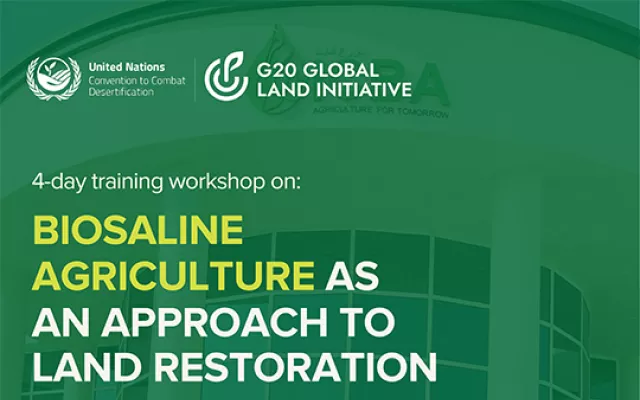New FAO-ICBA agreement to support agricultural development
14 March 2015
Dr. José Graziano da Silva, Director General of the United Nation’s Food and Agriculture Organization (FAO), and Dr. Ismahane Elouafi, Director General of the International Center for Biosaline Agriculture (ICBA), signed today a Memorandum of Understanding that strengthens the cooperation between both parties in areas of common interest. Specifically, both agreed to cooperate to raise agricultural productivity, increase water security and alleviate poverty while ensuring sustainable use and management of natural resources and protection of ecosystems.
ICBA is an international, non-profit organization that aims to strengthen agricultural productivity in marginal and saline environments through identifying, testing and facilitating access to sustainable solutions for food, nutrition and income security. This creates a natural synergy with FAO’s strategic objectives, which aims to help eliminate hunger, food insecurity and malnutrition; make agriculture, forestry and fisheries more productive and sustainable; reduce rural poverty; enable inclusive and efficient agricultural and food systems; and increase the resilience of livelihoods to disasters.
ICBA and FAO have had fruitful cooperation for a number of years, including cooperation between ICBA and the FAO Regional Office for the Near East and North Africa (“FAO-RNE”), the FAO Representation in the United Arab Emirates in Abu Dhabi, the Joint FAO/IAEA Division of Nuclear Techniques in Food and Agriculture in Vienna, and the initiatives taken for strengthening cooperation in Central Asia and for supporting the Global Soil Partnership.
Both institutions wish to develop and strengthen the technical cooperation between them in the sector of Agricultural Land and Water Management to support FAO member countries in identifying and streamlining policies and best practices in agricultural water management which can contribute to boosting agricultural productivity, improving food security and sustaining water resources.










